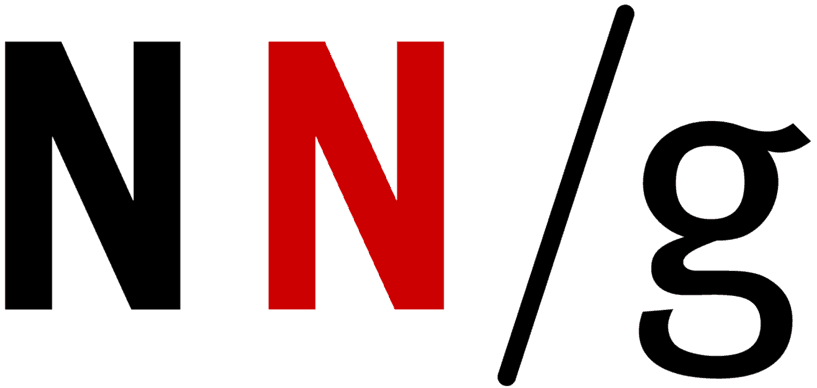One of the discount usability movement's basic tenets is that we need a drastic expansion in the amount of usability work done in the world, and to make this happen we need more people to take on usability assignments.
This goal is perfectly feasible for several reasons:
- Designers and developers are capable of performing basic usability activities such as user testing. Small projects can cope without the benefit of dedicated usability experts.
- Simplified usability (e.g., testing 5 users) can be cheap and easily integrates with Agile development and other fast-moving projects.
- The most important usability methods are easy to learn. For example, we teach design teams how to do user testing in a 3-day learning-by-doing workshop, where we take them through a fast test of their own design with a few of their own customers.
Honestly, it takes only 3 days to complete a small usability project:
- Day 1: Plan the study and write the test tasks.
- Day 2: Test 5 users for about 1 hour each (cleaning up between sessions).
- Day 3: Analyze the findings and write up the top recommended design improvements.
Even the fastest-moving project should be able to set aside 3 days to improve the user experience. There's no excuse for unleashing your design on the unsuspecting public without at least one round of user testing.
Usability's ROI is huge: if you've never done any testing, you can typically at least double your conversion rate or other key business metrics.
When Usability Experts Can Help
I run a company that makes 1/3 of its money from usability consulting (the other 2/3 comes from publishing independent user research reports and hosting regular usability conferences.) How can I say that anybody can do usability? Have I just written myself out of a job? No.
Usability is like cooking dinner:
- Everybody needs the outcome: As with your need to eat, your company needs to meet its business goals, which it can do much better if the design has been improved through usability.
- Anybody can perform the most basic activities: Most anyone can fry a chicken, cook potatoes, run a quick test with 5 customers, or score a design for compliance with a checklist of usability guidelines.
- Anyone can learn these basics pretty quickly: They're not all that difficult.
- There's a level of excellence beyond the basics: Going to a fancy restaurant and eating a meal cooked by a master chef is vastly different than eating something you throw together yourself in 20 minutes. Similarly, a usability expert will give you insights into your users' needs and your possible design directions that are much deeper than advice you'd get from someone whose main job is in a different field.
- Skill levels form a continuum from beginner to expert; it's not a dichotomy. Every time you learn something, your performance improves. Usability and cooking are particularly suited for continuing education, because anything you learn will remain useful for many years to come. This is why I place so much emphasis on usability training: you get better results for every extra bit you learn.
The cooking analogy stretches even further:
- Although multi-star gourmet restaurants are wonderful, there's also a place in the world for modest neighborhood restaurants. Similarly, you should sometimes hire a second-tier usability firm or even a third-tier local consultant instead of bringing in a world-class usability firm. Most design projects include many workman-like, everyday usability activities that the lower-end guys can do well enough.
- Even if you can afford it, you shouldn't eat out every day. Your waistline benefits from getting more modest meals most of the week. Similarly, it's good for your project if many day-to-day usability activities are performed by the designers and developers themselves. The more usability guidelines these folks know, the fewer design mistakes they'll make, and the less rework you'll have to do after discovering how people really use your product.
- Variety is the spice of life. Mexican, Indian, Chinese, Japanese, Italian, French. All great cuisines. Why pick only one? Similarly, combining many usability methods — such as user testing, guideline reviews, analysis by independent experts, analytics or A/B testing, and field studies — offers the best insights into optimal design. Experienced usability professionals have a very rich toolbox that goes beyond the simpler methods that anyone can use after a few days' training.
- Sometimes it's nice to have others do the work. Much as I love Indian food, I never cook it. Too much work to mix and roast the spices. And I don't have a tandoor oven. The people who specialize in these things can do it faster and already have the right tool for the job.
- There's value to being an outsider who's not restrained by corporate politics or "the way things are usually done." In cooking, sometimes you want the chicken done differently than your grandmother's sacred recipe demands. In usability, the person who takes a fresh view can see new things and can say things that insiders would be fired for even contemplating. (Maybe the VP's big, beloved animation shouldn't really be on the homepage. Feel free to blame me if you want to get rid of it.)
It's really a matter of balance. Yes, experts add value in usability, as in other walks of life. Yes, an expert can go beyond most peoples' accomplishments. But no, that doesn't mean that usability should be the responsibility of the experts alone. Everybody on the team needs to take responsibility for improving the user experience. And anybody can do usability; the basic methods are simple enough.




